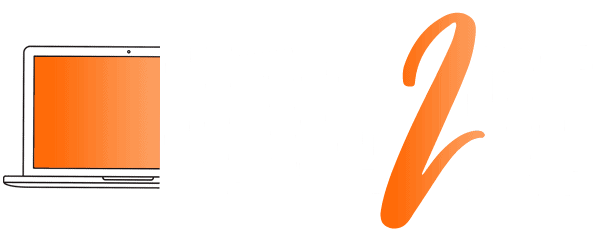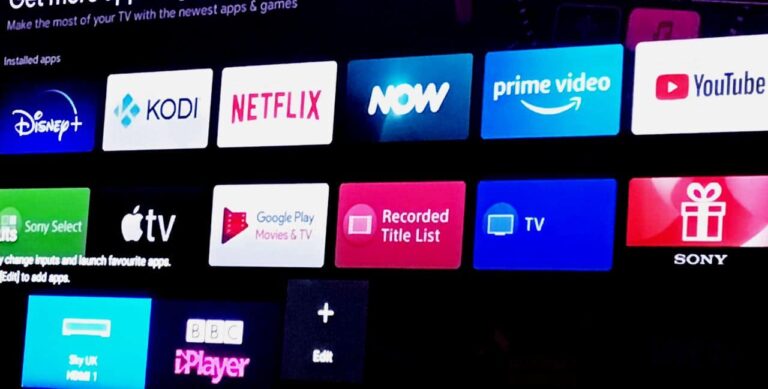Running my own business presents its fair share of challenges, especially when I have to handle multiple tasks on my own. Unfortunately, outsourcing isn’t always feasible due to financial constraints.
However, with the help of some apps, I was able to streamline business operations and increase efficiency drastically.
In this article, I would like to share a range of apps specifically tailored to meet the diverse needs of small businesses that worked for me.
Whether you run a traditional brick-and-mortar store or an online venture, these apps have proven to be incredibly valuable in helping me achieve my goals.
Ready to grow your small business? Let’s begin.
7 Best Apps for Running and Managing Operations of a Small Business
The following apps simplify many complex processes that a small business owner has to deal with. Therefore, reducing the time and effort it takes to manage mundane business operations.
1. Intuit QuickBooks
For a small business, having a record of the transactions is not only important for legal purposes, but it also helps measure the business’s financial performance during quarterly or annual reviews.
Intuit QuickBooks is an ERP software with a primary focus on fulfilling the Accounting needs of a small business owner. The software is cost-effective, easy to use, and simple to learn. Intuit even has a training program and courses available on Coursera to get acquainted with the software and the fundamental concepts of Accounting.
Through the use of Intuit QuickBooks, business owners can record transactions, make financial statements, profit/loss statements, cash flows, and more. All of which can be done quickly with QuickBooks compared to if you were to get it done by spreadsheets.
All statements made within QuickBooks are stored on the cloud and can be exported anytime in a PDF format. There is no better app for keeping a record of your business and measuring its performance than Intuit QuickBooks.
2. Wave
Generating professional-looking invoices is the bloodline of any small business. Many apps can help small business owners generate invoices for a clientele, but Wave is the most intuitive and easy-to-use application that can make your life a whole lot easier.
Wave has great professional-looking invoice templates, and the best aspect about this application is that it integrates with the other suite of professional applications you are using for your business, resulting in seamless invoicing.
Wave is absolutely free-to-use for anyone, and it is created by a small team of developers in Canada. So when using Wave, you support a local small business, which is a win-win situation.
3. Trello
I always had difficulty managing tasks and completing them at their deadline before I discovered Trello. With the help of Trello, I keep on top of all my tasks and projects and always know which task I need to put on my priority list.
If you haven’t guessed, Trello is a project management application that is free to use. It lets small business owners add tasks and assign completion stages to them. There is even an option to invite team members to Trello.
Overall, it is a great application that should be on the list of every small business owner to enhance the efficiency and productivity of the business.
4. Call Recorder for iPhone
I still recall the times I should’ve recorded an important client call to put it on a record. You won’t realize the importance of recording calls until you face litigation or a payment dispute.
Call Recorder for iPhone is available on the Appstore, and small business owners can download the app for free. This application seamlessly integrates with the call log of your devices and allows business owners to record calls with ease.
If you are running a small team of employees, this app can be downloaded on all their smartphones, so you can keep track of all the conversations they are having with the clients.
Call Recorder is a handy application that you should integrate into the daily operations of your business because you never know when you will need a piece of call recording.
5. Canva
Social media presence is crucial for the success of a small business. I still remember the huge surge of leads I got by publishing content on social platforms for my business, and I did all that with the help of Canva.
That is a design tool with predefined templates. With the help of the templates, you can simply drag and drop different animations, logos, etc., to make an image or a cover for social media posts.
It is a substitute for Adobe Photoshop. Unlike Photoshop, you don’t have to be a Pro in Canva and can simply drag and drop different stuff to create a presentable image or graphic post for your media campaign. It is a fun tool to use and gets 80% of the results you would expect from a professional graphic design software like Photoshop in a fraction of the time.
Along with its graphic design capabilities, Canva also has templates for presentations, reports, CVs, and more. If you want to supplement your design creation needs with a simple tool, Canva is the way to go.
6. Calendly
Missing a client call and not getting the project can spell a financial disaster for the upcoming quarterly assessment – I know it happened to me. Therefore, having software that can be used to schedule calls is quite important for a small business owner. For the past year or two, calendly has been my favored app.
Calendly is a free appointment-scheduling tool that seamlessly integrates with Zoom and Google Calendar. Using calendly, scheduling appointments has never been easier before. Simply create a new appointment, send the link to your client, let him choose the date and time based on your availability, and voila, you are done.
Calendly will automatically create a reminder in the Google Calender and schedule a Zoom call for the appointment. As a small business owner, you should definitely try Calendly to convert your leads into potential clients.
7. Google Analytics and G Suite
The Google Analytics and G Suite stack has been my go-to bundle for measuring the technical performance of my business, seeing where I am lacking, and increasing productivity.
Google Analytics is a great tool that measures the traffic and leads a business generates, the source of the traffic – country, region, etc, and the conversion ratio. Google Analytics shows key metrics that can be used to optimize the performance of a business.
G Suite is a set of collaborative productivity tools like shared calendars, professional emails for the business, online file sharing, online document editing, video meeting, etc. These productivity tools can help run your business like a well-oiled machine and, therefore, should be used by every small business owner.
Conclusion
If you want to take your small business to the next level, the apps mentioned above can help you streamline that journey. Every small business needs to automate at least the accounting, invoicing, scheduling, and project management aspects of a business using apps.
These apps can offer the perfect substitute, and most are free, so what are you waiting for? Download these apps and let me know which one you like the best. If you are using any other apps for your small business, drop them in the comment section below, and I will make sure to check them out.








